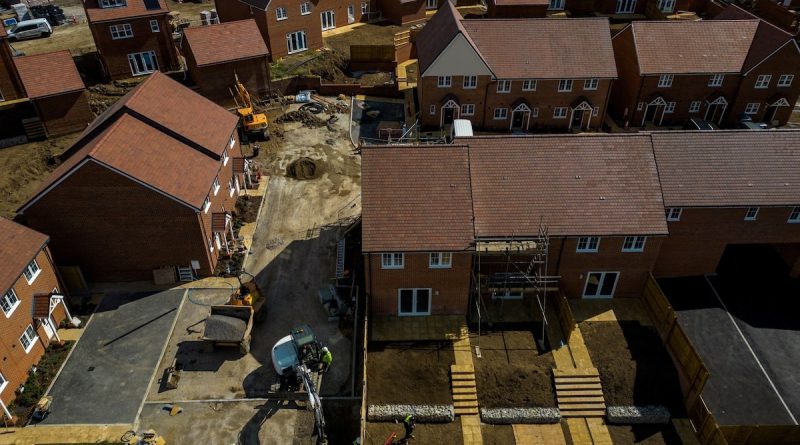London Housing Market Remains Resilient Ahead of UK Budget, Rightmove Reports
London — The UK housing market continued to show resilience and stability in October despite slower-than-usual price growth, according to the latest survey from Rightmove, one of Britain’s leading property websites.
While asking prices for homes rose by 0.3% in the four weeks to October 11—slightly below the long-term average of 1.1%—analysts say the figures point to a balanced market rather than a downturn, as buyers and sellers adopt a cautious but optimistic stance ahead of the government’s upcoming budget.
The report noted that the average asking price in Britain was down just 0.1% year-on-year, suggesting that the market has largely stabilized after several years of volatility caused by interest rate fluctuations and post-pandemic corrections.
Although the pace of growth has moderated, experts describe the overall picture as one of steady confidence rather than weakness.
“Despite the overall resilience of the 2025 housing market, we’ve not got enough pent-up momentum or recent positive sentiment to spur the usual autumn bounce in property prices,” said Colleen Babcock, a property expert at Rightmove.
“Speculation that the budget may impact the higher end of the property market has encouraged some buyers to wait and see, but demand for family homes and mid-range properties remains healthy.”
The slowdown in asking prices comes as Finance Minister Rachel Reeves prepares her first full budget on November 26, which is expected to focus on balancing tax reform with economic growth.
Market participants are closely watching for any announcements related to housing policies, stamp duty adjustments, or incentives for first-time buyers, all of which could influence property demand heading into 2026.
In addition to Rightmove’s findings, other indicators have pointed to continued market stability. Data from Halifax, the UK’s largest mortgage lender, showed a 1.3% annual increase in house prices in September, marking the weakest rise since April 2024 but still signaling positive growth.
Economists say the current phase reflects a healthy correction following several months of robust gains, allowing affordability to gradually improve for new buyers.
The report also highlighted regional variations, with London and the South East seeing more cautious activity, while the Midlands, Scotland, and Northern England continued to experience steady buyer interest.
Analysts attribute this to more affordable housing options outside the capital and a shift toward hybrid work patterns, which have expanded demand in regional markets.
Rightmove noted that buyer activity dipped slightly in September compared to the same period last year. However, this was largely expected, as the market in 2024 benefited from temporary stamp duty cuts and the Bank of England’s first series of interest rate reductions.
Despite these factors, the 2025 market remains more balanced, with stable demand and a return to normal seasonal trends.
“After a period of adjustment, both buyers and sellers seem more grounded in their expectations,” Babcock said. “Lower mortgage rates and increased housing supply have created a healthier environment for sustainable growth.”
Economists suggest that the upcoming budget could act as a short-term catalyst for the housing sector. Measures aimed at encouraging homebuilding, improving affordability, and stimulating investment could help unlock pent-up demand, especially if the government maintains its target of constructing 1.5 million new homes over the next five years.
With inflation easing and interest rates expected to remain stable into early 2026, market observers are optimistic that the UK housing sector will continue its gradual recovery. Homeowners are showing greater confidence in listing their properties, while first-time buyers benefit from improved financing conditions.
In summary, while October’s data points to a slower growth phase, the UK housing market remains steady, resilient, and fundamentally sound. Analysts expect modest gains in the months ahead, particularly if government policy supports long-term housing and infrastructure investment.
As the nation awaits the November budget, the sentiment across the real estate sector is one of cautious optimism, underpinned by improving economic fundamentals and the prospect of a more balanced, sustainable housing market in 2026.



